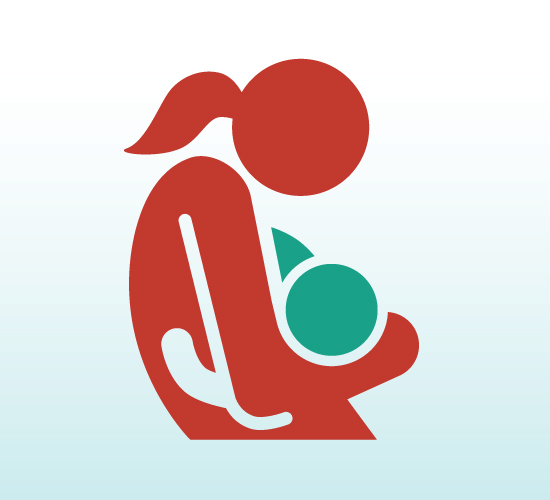Breastfeeding In The Age Of COVID-19

As a new mother, breastfeeding is one of the earliest experiences of bonding with and nurturing your baby. Under normal circumstances, this can be worrying, with mothers concerned about the right technique and proper nutrition for their babies. With the COVID-19 pandemic, this situation has deteriorated further because of the added layer of stress about infection and also about the safety of vaccination before or while breastfeeding. It’s important to note that exclusive breastfeeding for at least 6 months offers wide-ranging health benefits for both babies and mothers. These benefits are not nullified by your COVID-19 infection status or vaccination status.
Breastfeeding In India During The COVID-19 Pandemic
India already has a poor record when it comes to exclusive breastfeeding with reports indicating that less than 70% infants are exclusively breastfed during the first 6 months after birth (1). This is despite the fact that exclusive breastfeeding is associated with a reduced risk of conditions like asthma, diabetes, and obesity afflicting the baby later in life. Ideally, an infant is breastfed within the first hour of birth, but this practice is only followed with 41% of births in India and the numbers dropped even lower during the pandemic (2). This is because of lack of knowledge, misinformation, and myths about COVID-19 infection and breastfeeding.
In many cases, it was found that mothers who were suspected of having COVID-19 or tested positive for COVID-19 were denied access to their babies after birth. Families in city hospitals would often insist on this practice, demanding that babies be taken home or kept in separate wards. This is contrary to the World Health Organization (WHO) recommendations for breastfeeding even in cases when the mother has tested positive for COVID-19.
Breastfeeding When COVID-19 Positive
As per the recommendations of the WHO, mothers who are suspected of having COVID-19 or have already tested positive should continue to breastfeed their babies directly with skin-to-skin contact (3). The only safety measure that must be followed is that the mother wears a protective mask. This is because the benefits of breastfeeding and maternal contact at this stage far outweigh any risk of infection. There is also no valid evidence to suggest that breastfeeding can cause infection and instead it could increase the baby’s protection against the virus (4). Mothers who have been previously infected with COVID-19 can in fact pass on immune benefits to infants. This is because of the presence of IgA antibodies that are reactive to the virus in breast milk.
Breastfeeding And COVID-19 Vaccination
It is widely accepted that vaccination during pregnancy “is a promising strategy to protect the mother and neonate against the disease” (5). All of the COVID-19 vaccines that are in use are inactivated or subunit and nucleic acid vaccines. This basically means that, unlike live attenuated vaccines, they pose no risk of causing the disease itself. Vaccination is also strongly recommended for expectant or breastfeeding mothers who are exposed to a high risk of infection because of their work or the presence of comorbidities that can cause severe infection.
Additionally, COVID-19 vaccine components in standard non-live types of vaccines cannot enter breast milk. This means that there is no way that vaccination can harm your baby when breastfeeding. On the contrary, there is growing evidence to suggest that COVID-19 vaccine-induced antibodies can be passed on to your baby via breast milk (6). This may, in fact, provide passive or inherited immunity to a newborn, which could last for a few months to a year.
Ultimately, the decision to vaccinate during pregnancy or while breastfeeding is best made in consultation with your healthcare provider. But, when it comes to breastfeeding your baby, remember that there is no substitute for breastfeeding and maternal contact for an infant.
References:
- https://www.frontiersin.org/articles/10.3389/fpubh.2020.492596/full
- https://www.bmj.com/content/370/bmj.m3316
- https://www.who.int/news-room/commentaries/detail/breastfeeding-and-covid-19
- https://www.thelancet.com/journals/lanchi/article/PIIS2352-4642(20)30235-2/fulltext
- https://www.ncbi.nlm.nih.gov/pmc/articles/PMC8062420/
- https://www.ncbi.nlm.nih.gov/pmc/articles/PMC8163485/